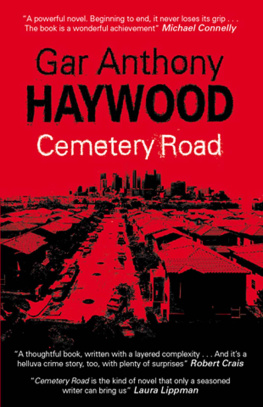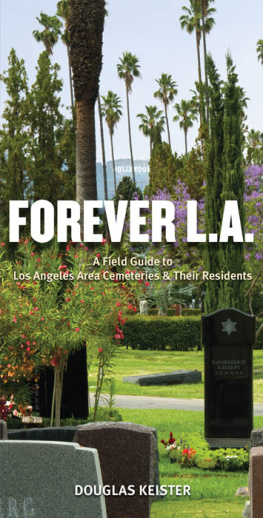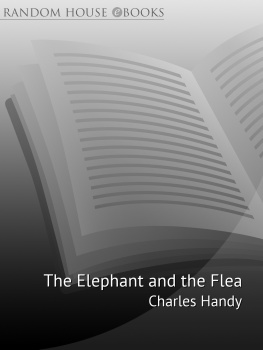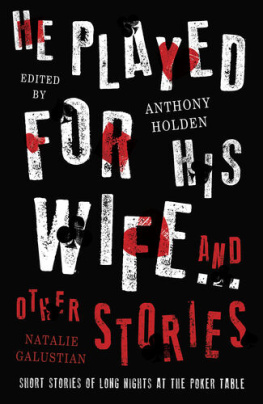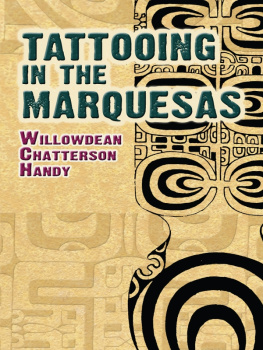A Selection of Titles by Gar Anthony Haywood
The Aaron Gunner Mysteries
FEAR OF THE DARK
NOT LONG FOR THIS WORLD
YOU CAN DIE TRYING
ITS NOT A PRETTY SIGHT
WHEN LAST SEEN ALIVE
ALL THE LUCKY ONES ARE DEAD
The Joe and Dottie Loudermilk Series
GOING NOWHERE FAST
BAD NEWS TRAVELS FAST
writing as Ray Shannon
MANEATER
FIRECRACKER
CEMETERY ROADGar Anthony Haywood
This eBook is copyright material and must not be copied, reproduced, transferred, distributed, leased, licensed or publicly performed or used in any way except as specifically permitted in writing by the publishers, as allowed under the terms and conditions under which it was purchased or as strictly permitted by applicable copyright law. Any unauthorised distribution or use of this text may be a direct infringement of the author's and publisher's rights and those responsible may be liable in law accordingly.
This first world edition published 2009
in Great Britain and 2010 in the USA by
SEVERN HOUSE PUBLISHERS LTD of
915 High Street, Sutton, Surrey, England, SM1 1DF.
Copyright 2009 by Gar Anthony Haywood.
All rights reserved.
The moral right of the author has been asserted.
British Library Cataloguing in Publication Data
Haywood, Gar Anthony.
Cemetery Road.
1. Criminals Crimes against California Los Angeles Fiction.
2. Los Angeles (Calif.) Fiction. 3. Detective and mystery stories.
I. Title
813.54-dc22
ISBN-13: 978-1-78010-035-7 (ePub)
ISBN-13: 978-0-7278-6851-0 (cased)
ISBN-13: 978-1-84751-193-5 (trade paper)
Except where actual historical events and characters are being described for the storyline of this novel, all situations in this publication are fictitious and any resemblance to living persons is purely coincidental.
For the stubborn few who continued to believe, long after the lights went out. You know who you are. God bless you and keep you well.
ACKNOWLEDGMENTS
Many people offered me invaluable assistance in the writing of this book, but the following individuals deserve specific mention:
Alexis Moreno, Los Angeles historian
Eddie Muller, writer and pal
Joe Rein, boxing journalist and historian
Lt Ken Thomas, Public Information Office, Pelican State Prison
Patricia Medina, Executive Director, Crescent City Chamber of Commerce
Ray Mooring, US Bureau of Engraving and Printing
Winter, 1979
W hat Ive always remembered most about my last day in Los Angeles is the smell of burning tar.
A neighbor across the alley from Os mothers garage was having his roof redone and the stench of molten tar hung in the air like a hot, black cloud.
Goddamn, that shit stinks! R.J. kept saying.
O was late as usual and all the waiting around had R.J. going through Kools like a chocolate junky through Kisses. By the time O finally showed up, over forty minutes after the agreed-upon hour, the floor of the garage was littered with butts, R.J. having crushed them underfoot with an animal-like ferocity to assuage his terror.
What the fuck kept you?
It was a curious thing. R.J. was tighter with O than I had ever been, but it was he who seemed afraid our friend was gone forever, that O had changed the plan and decided not to come. I had entertained the idea myself, but only briefly. We were all going to be running soon enough; leaving without making this final, farewell gesture would have surely been too foolish an improvisation for O to even consider.
I thought somebody might be following me, so I had to drive around a while till I was sure nobody was.
O tossed the big canvas bag hed brought with him on to a workbench overrun with hand tools. It landed with the sound of a fat man jumping on a hardwood floor.
You dont trust me enough to know I was still coming, you probably dont trust me enough to believe its all here. He opened the mouth of the bag, kept his eyes on R.J. You want to count it?
Goddamn right we want to count it. R.J. flicked one last cigarette toward the floor and moved to the bag, never giving me so much as a backwards glance. He reached in, retrieved a pair of dog-eared bundles of green, and flipped them over to me. Check it out, Handy, he said.
I ran a thumb across the bills as he rifled through the bags full contents, O watching us both with the detached demeanor of an innocent man in a police line-up. I wasnt as concerned about Os dishonesty as R.J. was, but I scrutinized the two stacks of tens and twenties closely enough to make a rough estimate: Looks like fifteen hundred, give or take. I underhanded the money back to R.J., who returned it to the swollen belly of the canvas bag and proceeded to flip through two more bundles of his own.
Its all there, R.J., I said.
He looked up.
And we dont have time to get in his ass even if its not. Were on the clock here.
Fuck the clock. A hundred and forty grand is a lotta bread, Handy. How do we know
Because we know the man, I said. Thats how.
R.J. thought about it, giving O the hard look his unabashed suspicion demanded, and closed up the bag.
Lets do this, then, O said.
He had rolled an old black, steel-drum barbecue grill to the center of the garage earlier that day, hours before R.J. and I had arrived shortly before noon, and now he brought the canvas bag and a can of kerosene over to it, acting as high priest of the dark ceremony we had all come here to take part in. He poured the bags contents over the grills open maw, drenched the mountain of emerald paper liberally with kerosene, and produced a book of matches. He started to strike one, but I put a hand out at the last second and said, Ill do it.
My two friends looked at me with equal surprise.
Im the one who wanted this. Im the one who should have to live with it.
I took the matches from Os hand and snapped one to life, tossing the yellow flame into the grill before regret had any chance to take over the room.
We watched the money burn in silence for a long while, our eyes thick with smoke and our hearts heavy. This was only part of the price we had to pay for absolution, and it wasnt going to be anywhere near high enough.
It wasnt our fault, O said, his gaze fixed on the fire.
Hell, no, R.J. agreed, speaking a lie he knew he would never truly be able to believe.
I didnt say anything. I didnt want the debate to begin anew.
Im gonna miss you niggas, R.J. said.
O and I nodded our heads in silence, though I was already certain it wasnt Os and R.J.s friendship I was going to miss most in the years to come.
It was the hope I used to have for my eternal soul.
ONE
I ts not a problem young people have to worry about, but right around the time he hits his middle forties, a man starts giving serious thought to dying well. In his sleep in his own bed, or in the course of a street fight meant to settle something meaningful. His end doesnt have to be poignant, just devoid of indignity. You wouldnt think that would be too much to ask.
But how a man leaves this world, much like the way he comes into it, is almost never his own call to make, so evil men die on satin sheets in 400-dollar-a-night hotel rooms, while good ones breathe their last lying face down in cold, dark alleyways, their bodies growing stiff and blue on beds of rain-soaked newspaper.
Robert James Burrow didnt deserve to go out like royalty, perhaps, but he didnt deserve the ignoble exit he made either, shot four times and left to rot in the trunk of a stolen Buick LeSabre, down by the Santa Monica Pier in Los Angeles where we both grew up.

